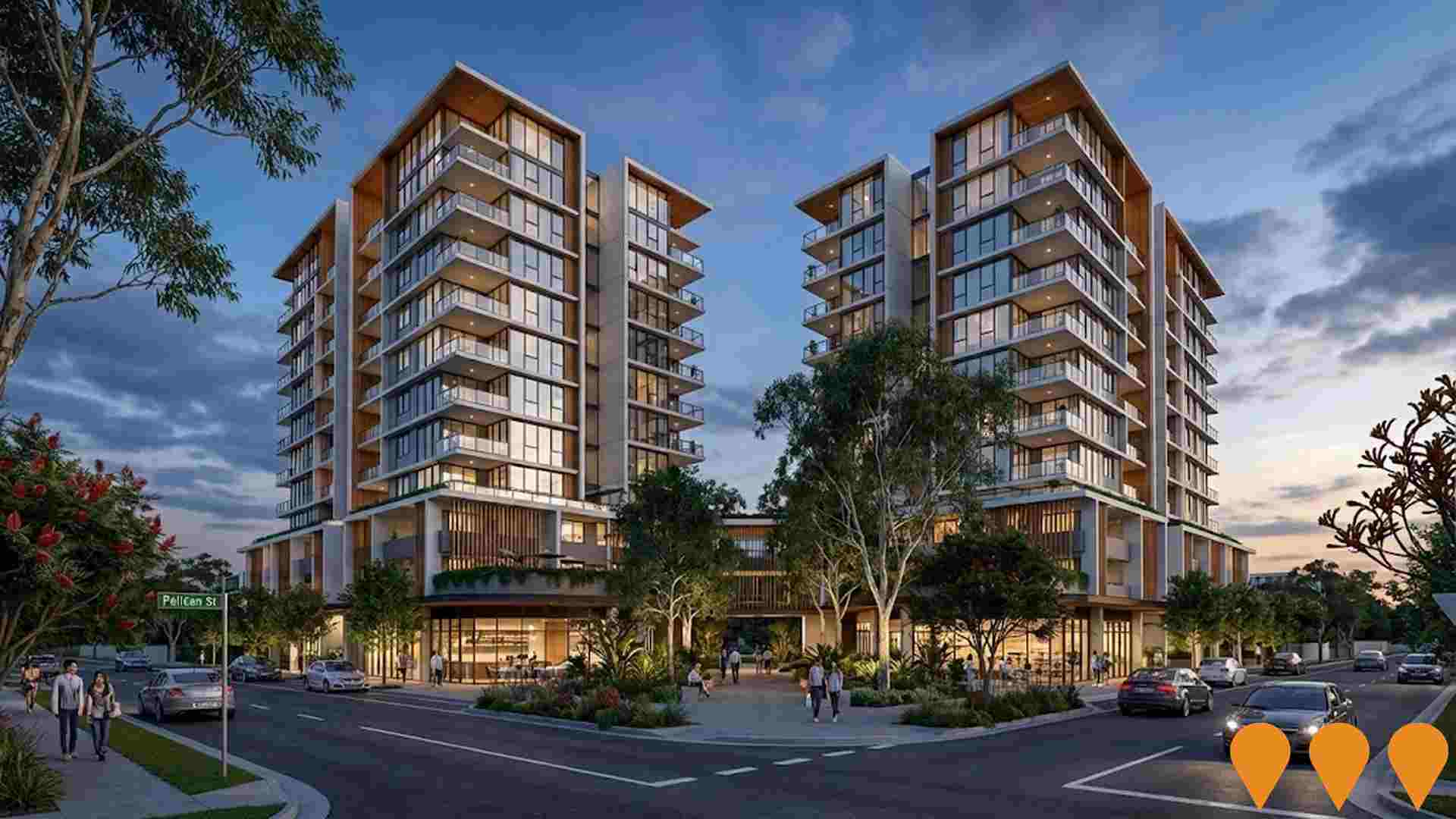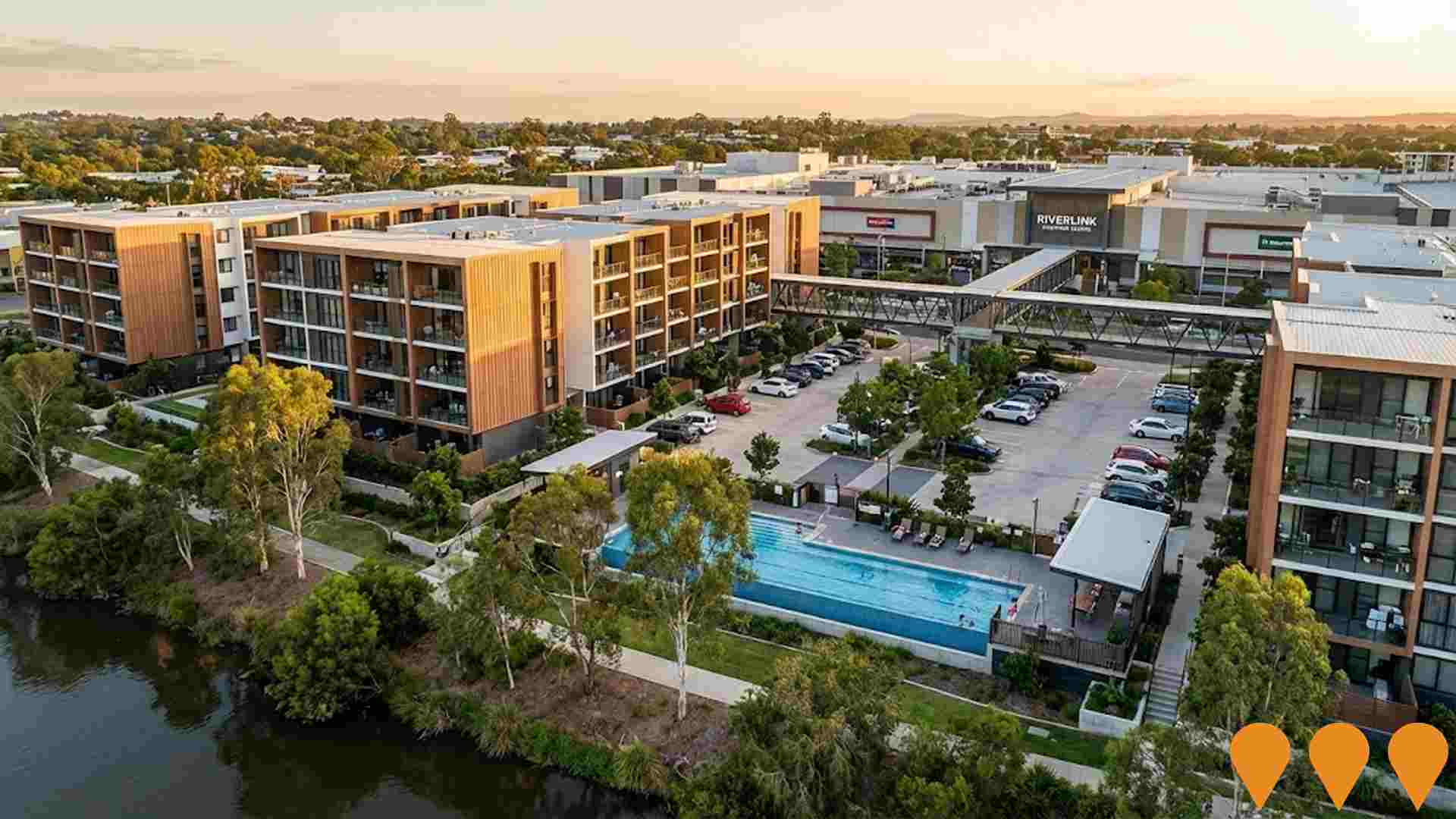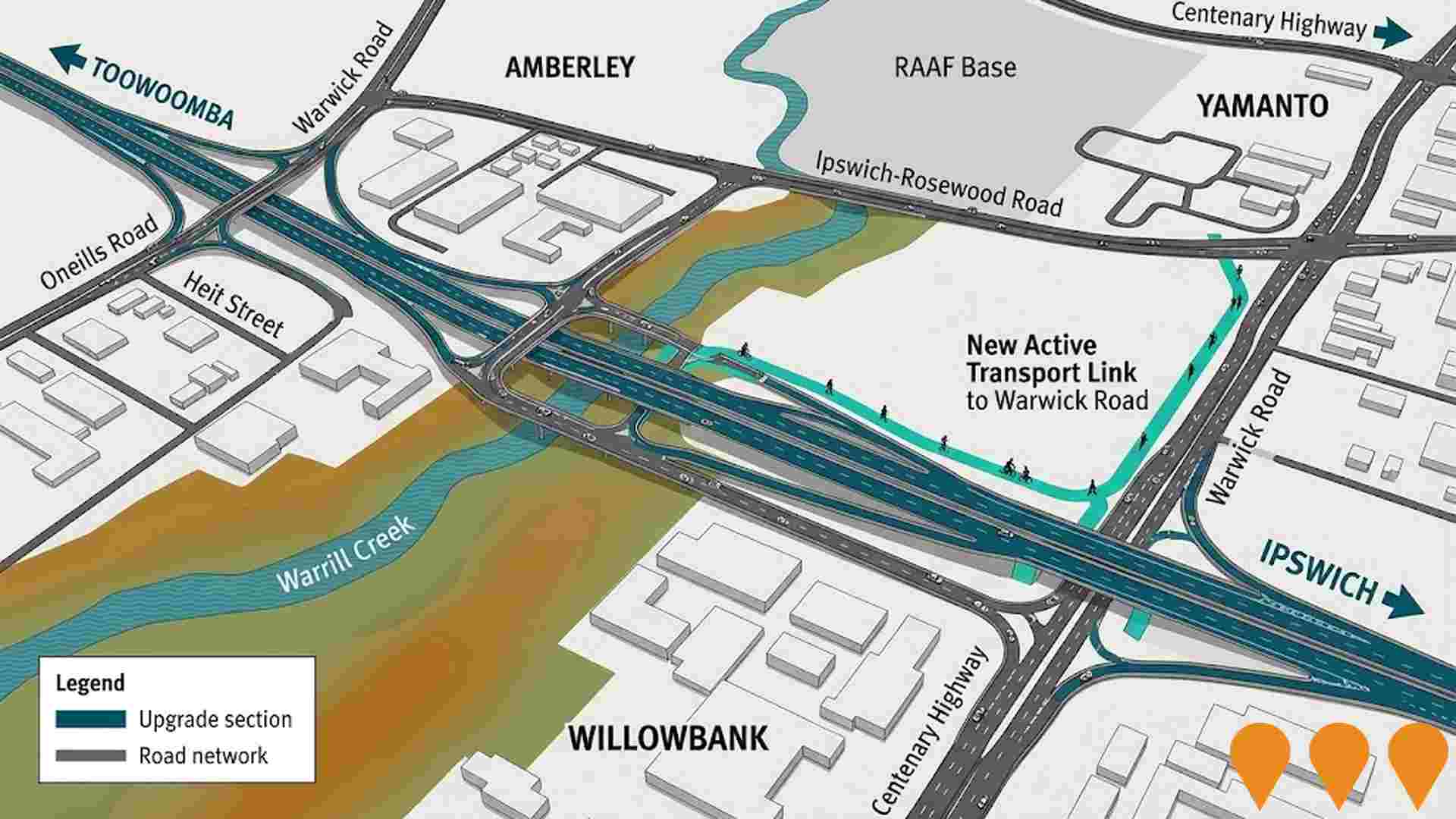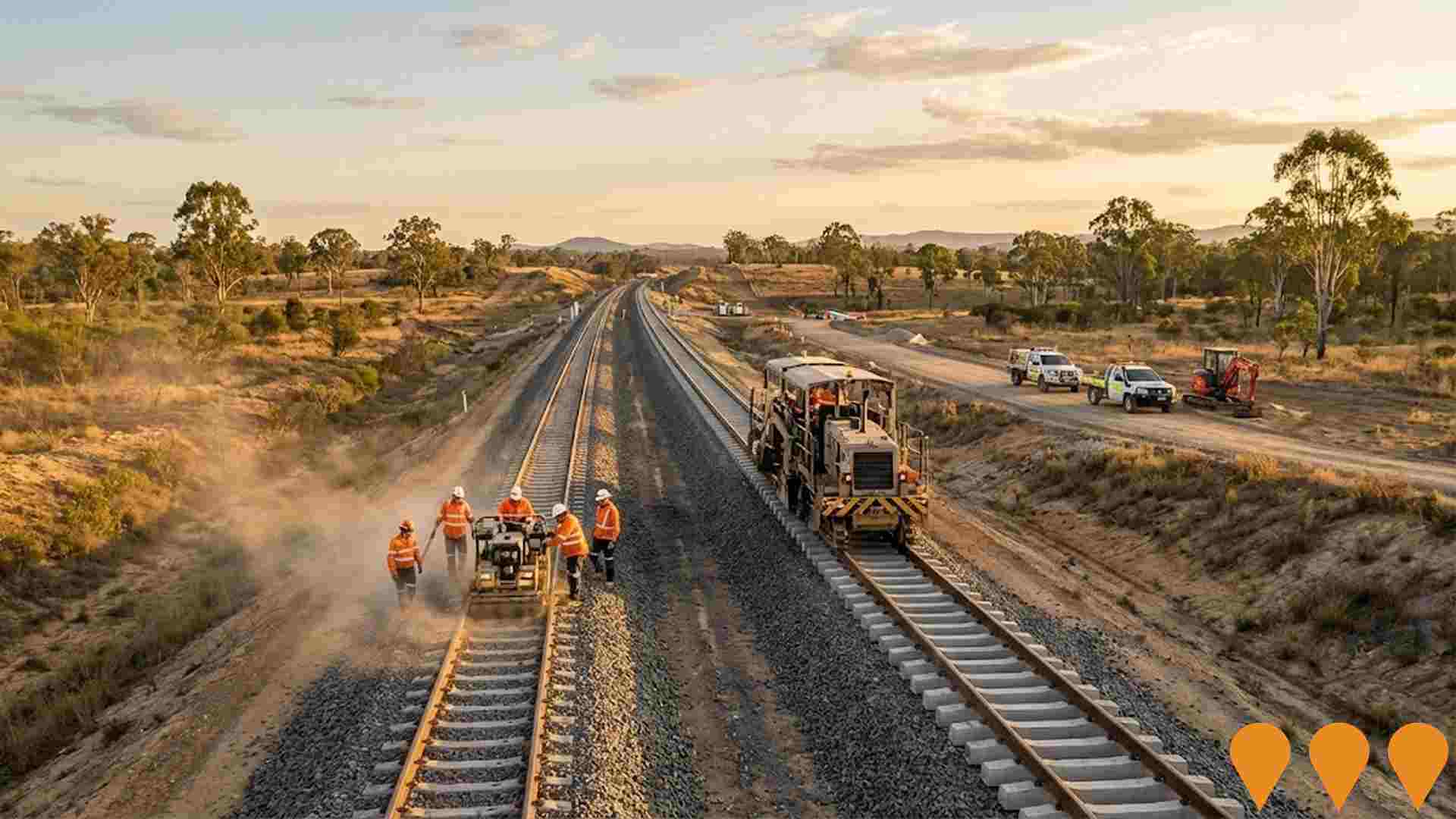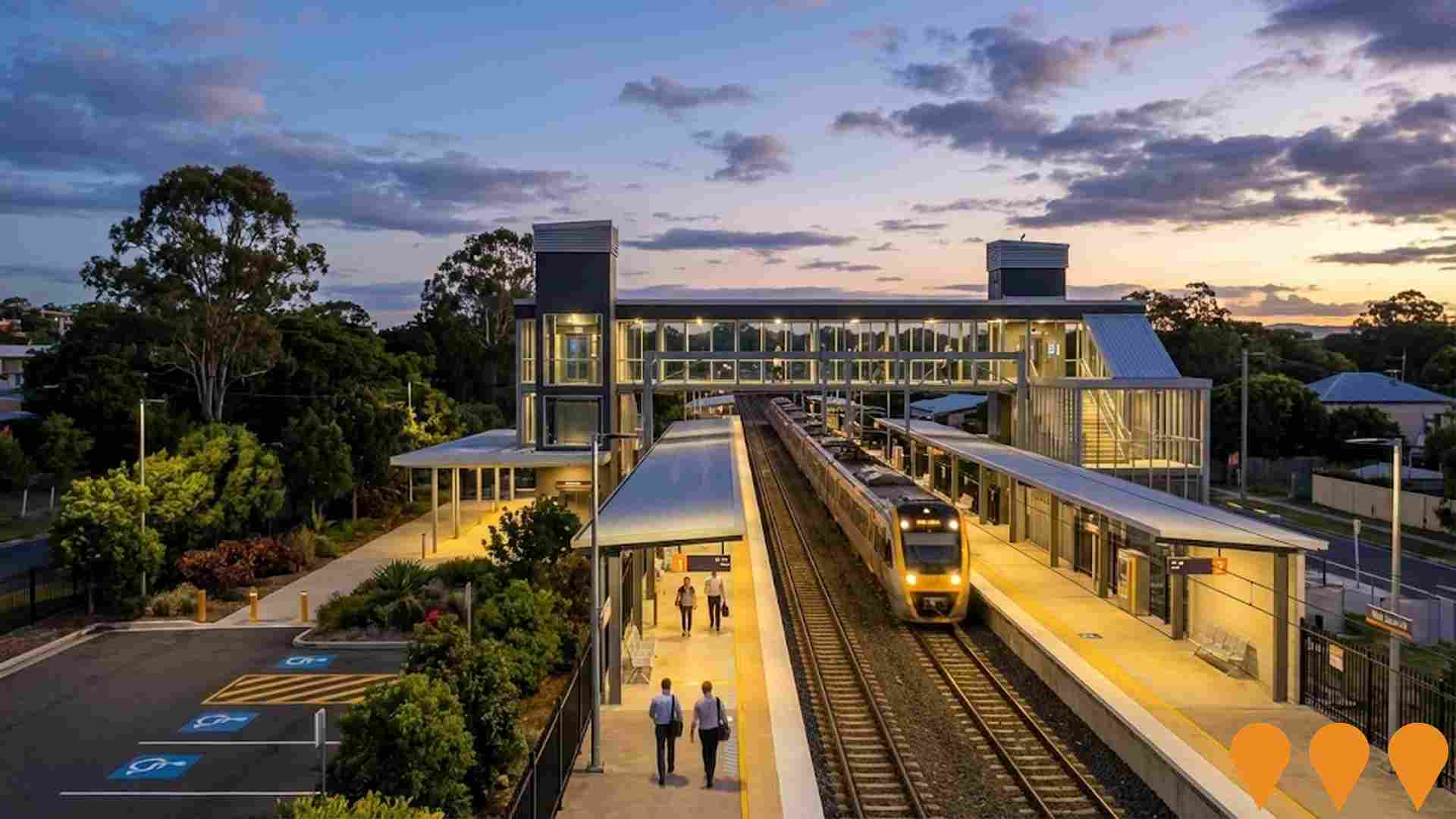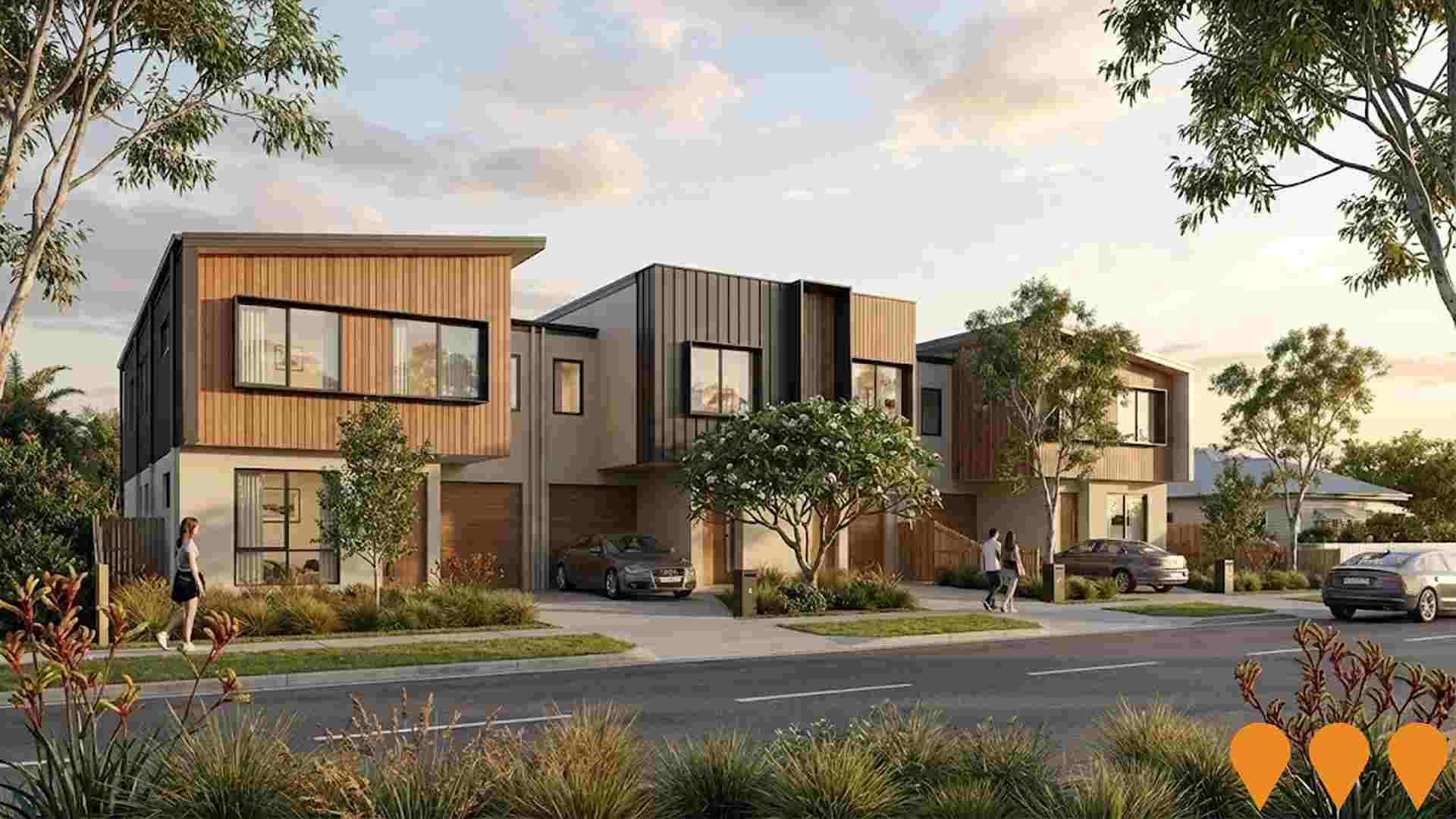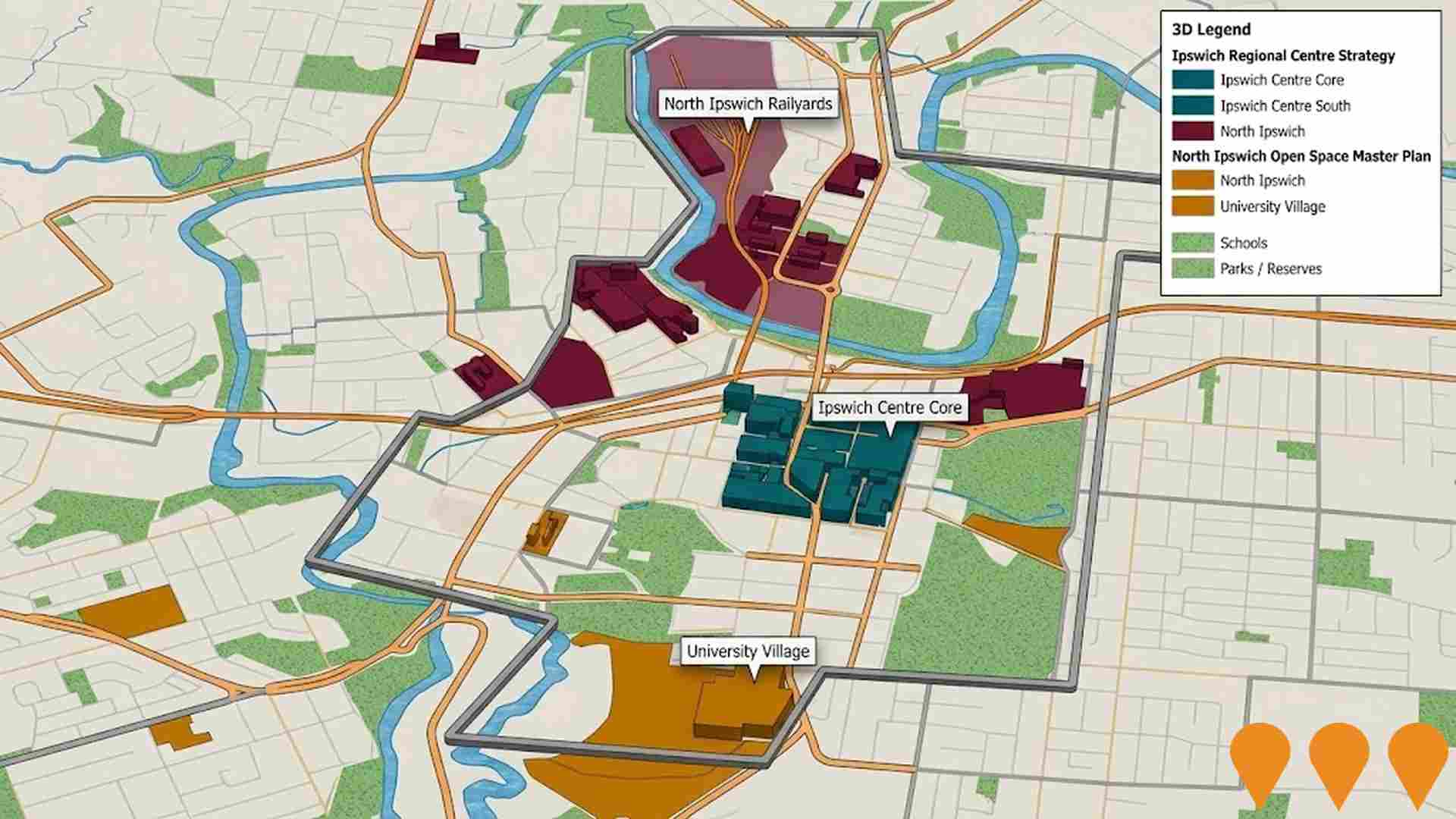Chart Color Schemes
This analysis uses ABS Statistical Areas Level 2 (SA2) boundaries, which can materially differ from Suburbs and Localities (SAL) even when sharing similar names.
SA2 boundaries are defined by the Australian Bureau of Statistics and are designed to represent communities for statistical reporting (e.g., census and ERP).
Suburbs and Localities (SAL) represent commonly-used suburb/locality names (postal-style areas) and may use different geographic boundaries. For comprehensive analysis, consider reviewing both boundary types if available.
est. as @ -- *
ABS ERP | -- people | --
2021 Census | -- people
Sales Activity
Curious about local property values? Filter the chart to assess the volume and appreciation (including resales) trends and regional comparisons, or scroll to the map below view this information at an individual property level.
Find a Recent Sale
Sales Detail
Population
North Ipswich - Tivoli is positioned among the lower quartile of areas assessed nationally for population growth based on AreaSearch's assessment of recent, and medium term trends
North Ipswich - Tivoli's population is around 6,767 as of Nov 2025. This reflects an increase of 351 people since the 2021 Census, which reported a population of 6,416 people. The change is inferred from the estimated resident population of 6,611 from the ABS as of June 2024 and an additional 81 validated new addresses since the Census date. This level of population equates to a density ratio of 707 persons per square kilometer. Population growth for the area was primarily driven by overseas migration that contributed approximately 63.2% of overall population gains during recent periods.
AreaSearch is adopting ABS/Geoscience Australia projections for each SA2 area, as released in 2024 with 2022 as the base year. For any SA2 areas not covered by this data, and for years post-2032, Queensland State Government's SA2 area projections are adopted, released in 2023 and based on 2021 data. It should be noted that these state projections do not provide age category splits; hence where utilised, AreaSearch is applying proportional growth weightings in line with the ABS Greater Capital Region projections for each age cohort, released in 2023 based on 2022 data. Considering the projected demographic shifts, a population increase just below the median of national statistical areas is expected, with the area expected to grow by 759 persons to 2041 based on the latest annual ERP population numbers, reflecting an increase of 8.9% in total over the 17 years.
Frequently Asked Questions - Population
Development
AreaSearch assessment of residential development drivers sees a low level of activity in North Ipswich - Tivoli, placing the area among the bottom 25% of areas assessed nationally
North Ipswich - Tivoli has averaged approximately 23 new dwelling approvals annually over the past five financial years, totalling 119 homes. As of FY-26 so far, 26 approvals have been recorded. The average increase in residents per year per dwelling constructed between FY-21 and FY-25 was 0.6. This new supply has kept pace with or exceeded demand, providing ample buyer choice and creating capacity for population growth beyond current forecasts.
The average expected construction cost value of new dwellings is $222,000, reflecting more affordable housing options compared to regional norms. In FY-26, there have been $7.0 million in commercial approvals, indicating the area's primarily residential nature. Compared to Greater Brisbane, North Ipswich - Tivoli records markedly lower building activity, at 69.0% below the regional average per person. This limited new supply generally supports stronger demand and values for established dwellings. Recent construction comprises 36.0% standalone homes and 64.0% medium and high-density housing, marking a significant departure from existing housing patterns which are currently 91.0% houses. The estimated population density in the area is 862 people per dwelling approval, reflecting its quiet, low activity development environment.
According to AreaSearch's latest quarterly estimate, North Ipswich - Tivoli is expected to grow by 603 residents through to 2041. Current development appears well-matched to future needs, supporting steady market conditions without extreme price pressure.
Frequently Asked Questions - Development
Infrastructure
North Ipswich - Tivoli has strong levels of nearby infrastructure activity, ranking in the top 40% nationally
Changes to local infrastructure significantly influence an area's performance. AreaSearch identified 19 projects that could impact the area. Notable projects include North Ipswich Sport and Entertainment Precinct, North Ipswich Apartments, Ipswich Hospital Expansion Stage 2, and The Terrace. The following details projects likely to be most relevant.
Professional plan users can use the search below to filter and access additional projects.
INFRASTRUCTURE SEARCH
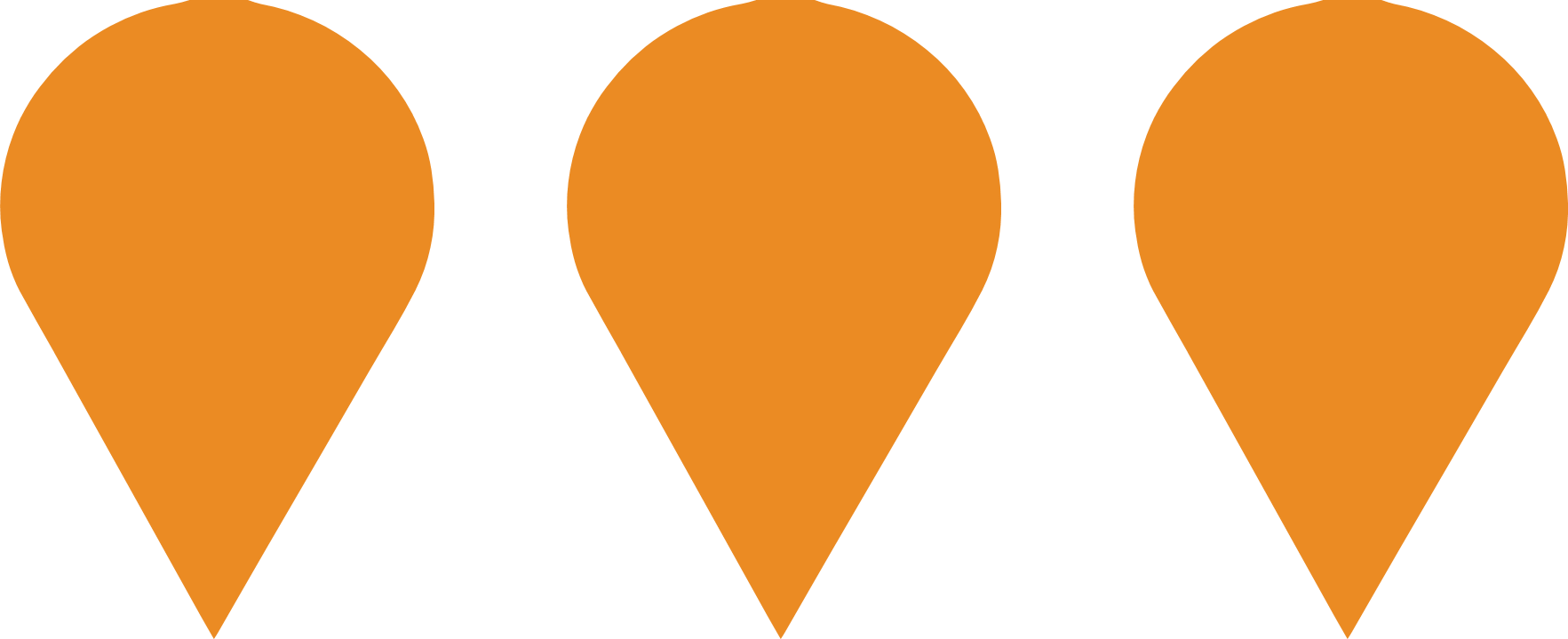 Denotes AI-based impression for illustrative purposes only, not to be taken as definitive under any circumstances. Please follow links and conduct other investigations from the project's source for actual imagery. Developers and project owners wishing us to use original imagery please Contact Us and we will do so.
Denotes AI-based impression for illustrative purposes only, not to be taken as definitive under any circumstances. Please follow links and conduct other investigations from the project's source for actual imagery. Developers and project owners wishing us to use original imagery please Contact Us and we will do so.
Frequently Asked Questions - Infrastructure
Ipswich Hospital Expansion Stage 2
A major $1.066 billion hospital expansion as part of the Queensland Government's Health Capacity Expansion Program. Stage 2, which commenced early works in 2024 and main construction later in 2024, is expected to be completed in late 2027 or mid-2028. It will deliver a new multi-storey acute clinical services building with 200 new beds, a new and expanded Emergency Department, six additional operating theatres, a satellite medical imaging service, a new Central Sterilisation Service Department, and a multi-storey car park. The project's overall estimated value has been revised to $925 million as of June 2025. It is set to create 1,700 construction jobs and service the West Moreton region, one of Queensland's fastest-growing areas.
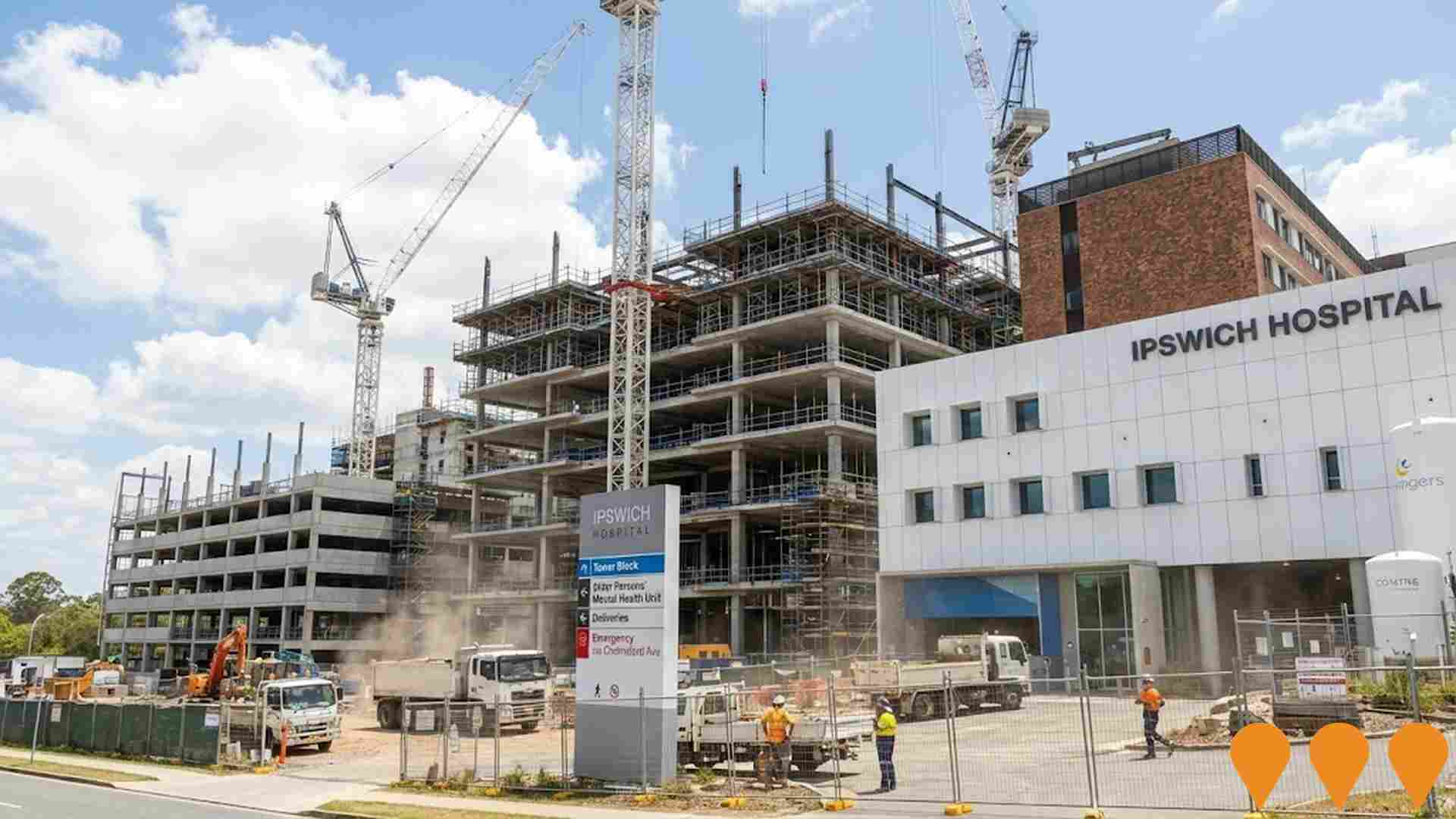
Ipswich Better Bus Network
Multi-stage bus network improvement program for Ipswich delivering new routes, higher frequencies, extended hours, and bus priority measures. Focuses on connecting growth areas including Redbank Plains, Springfield, Ripley, Augustine Heights, Bellbird Park, Collingwood Park, and Karalee. Includes new bus rapid transit elements, station upgrades, real-time passenger information, and integration with Cross River Rail and future Ipswich to Springfield public transport corridor.
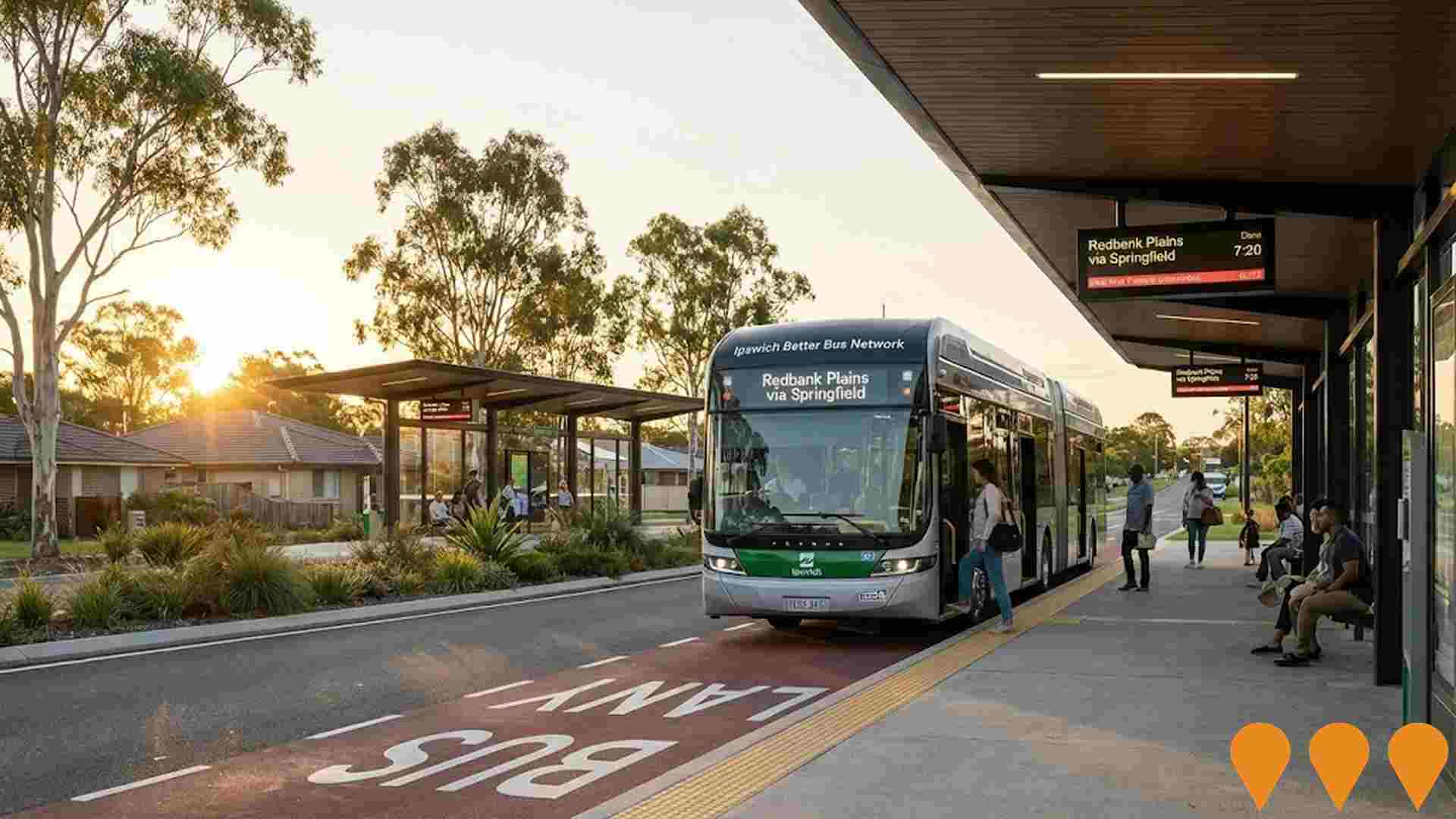
Ipswich Smart City Program
The Ipswich Smart City Program is a city-wide digital transformation initiative led by Ipswich City Council to enhance liveability, sustainability and economic prosperity through smart technology. Key components include IoT sensors, smart lighting, public Wi-Fi, environmental monitoring, a city data platform and multiple pilot precincts. The program remains active with ongoing rollout of new sensors, smart parking and flood-monitoring projects across the city as of 2025.
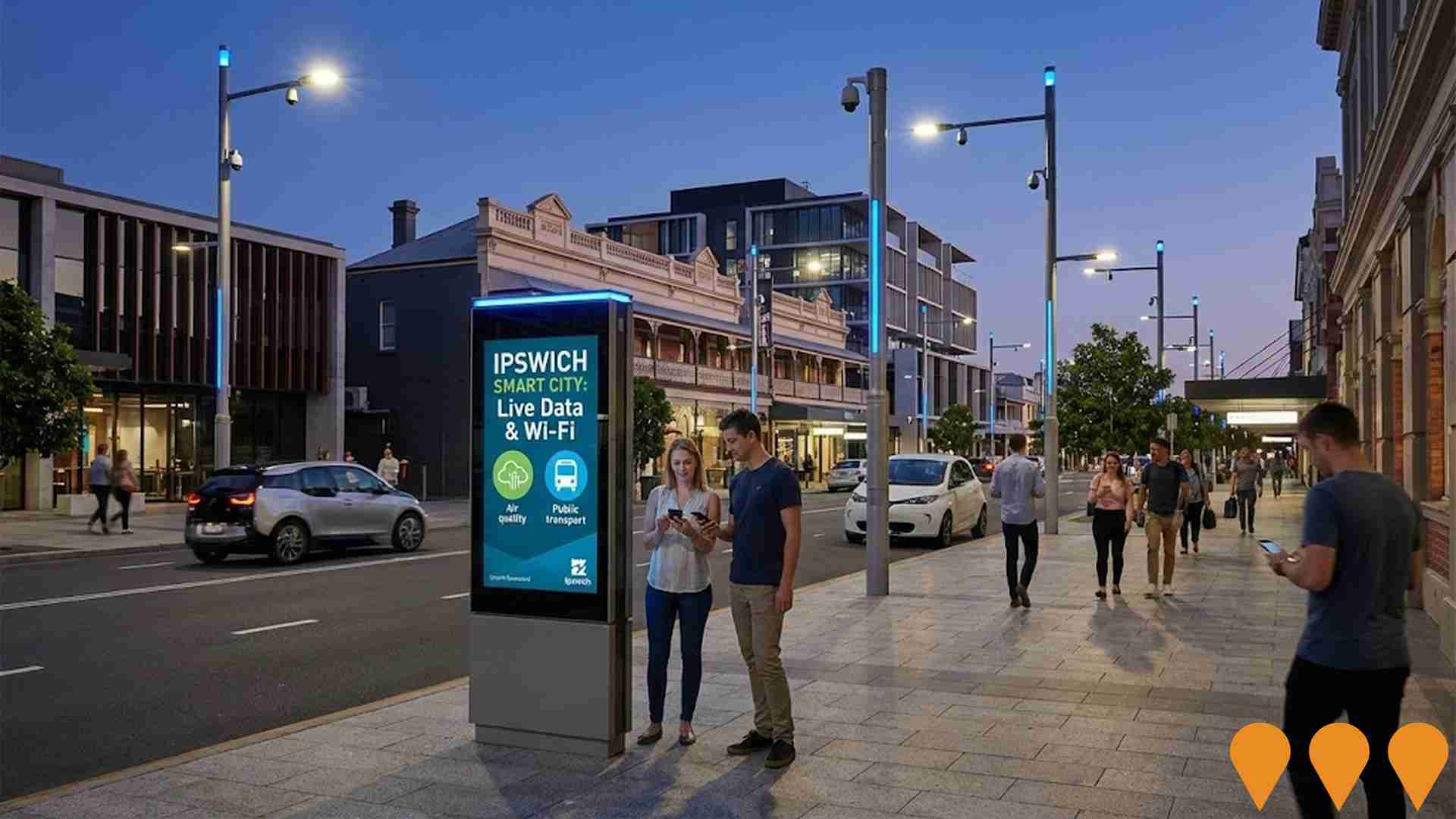
North Ipswich Sport and Entertainment Precinct
Stage 1 will modernise North Ipswich Reserve with a new western grandstand and field lighting as the first step toward a 12,000-seat rectangular stadium and broader precinct upgrades. The project is jointly funded by the Australian Government, Queensland Government and Ipswich City Council and targets operation of Stage 1 by late 2027.
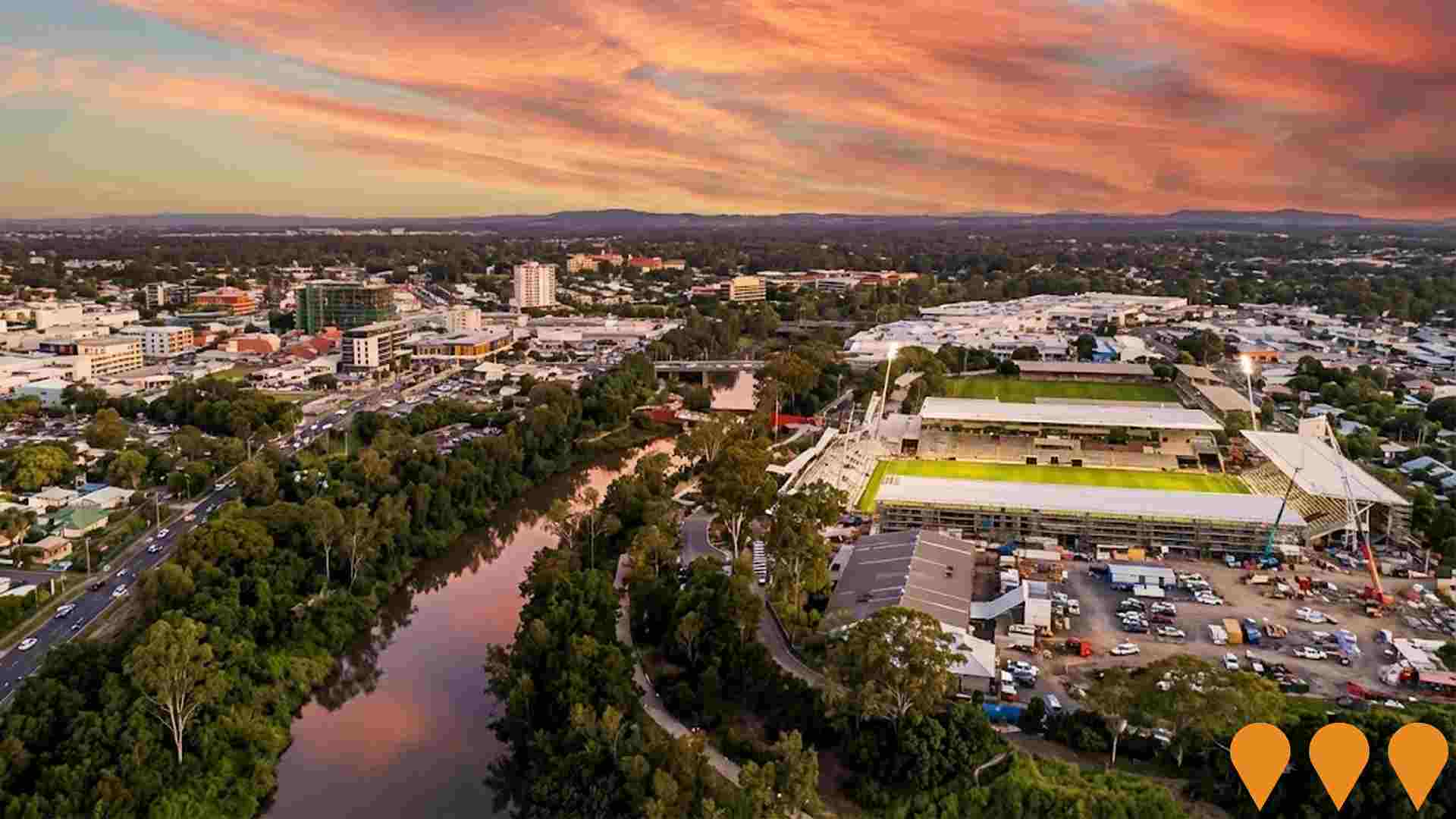
Brassall Bikeway Stage 6 Extension
The final stage of the Brassall Bikeway, this project will connect the existing path to the Ipswich CBD via the Bradfield Bridge. The plan includes a lift to connect the riverbank level with the bridge, completing a 14km continuous bikeway network. This network links North Ipswich, Brassall, and Wulkuraka to the Brisbane Valley Rail Trail.
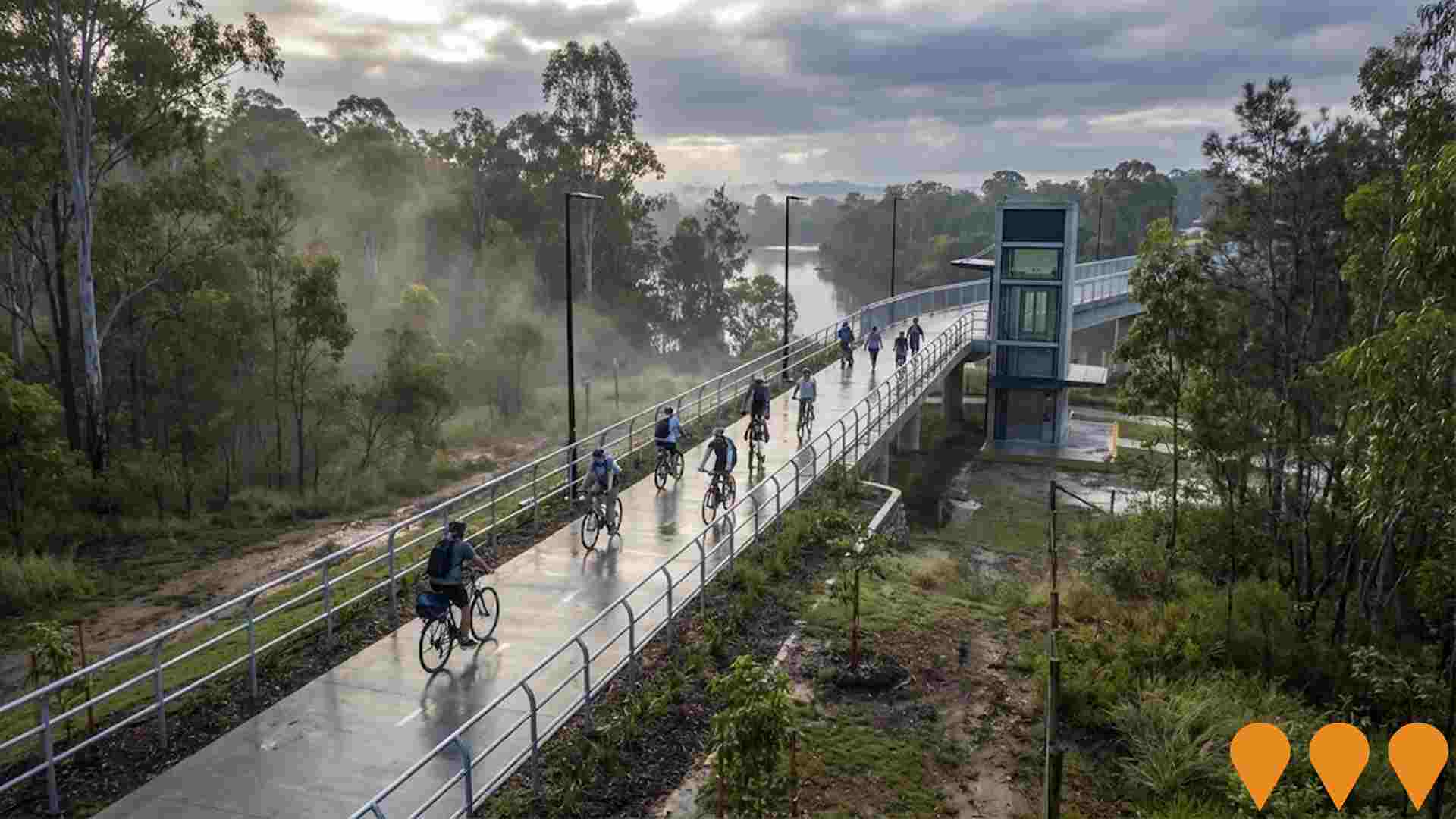
Mary and Williams Streets Intersection Upgrade
Major intersection upgrade at Mary and Williams streets in Blackstone to improve traffic flow and safety. Part of Ipswich City Council's road infrastructure improvement program.
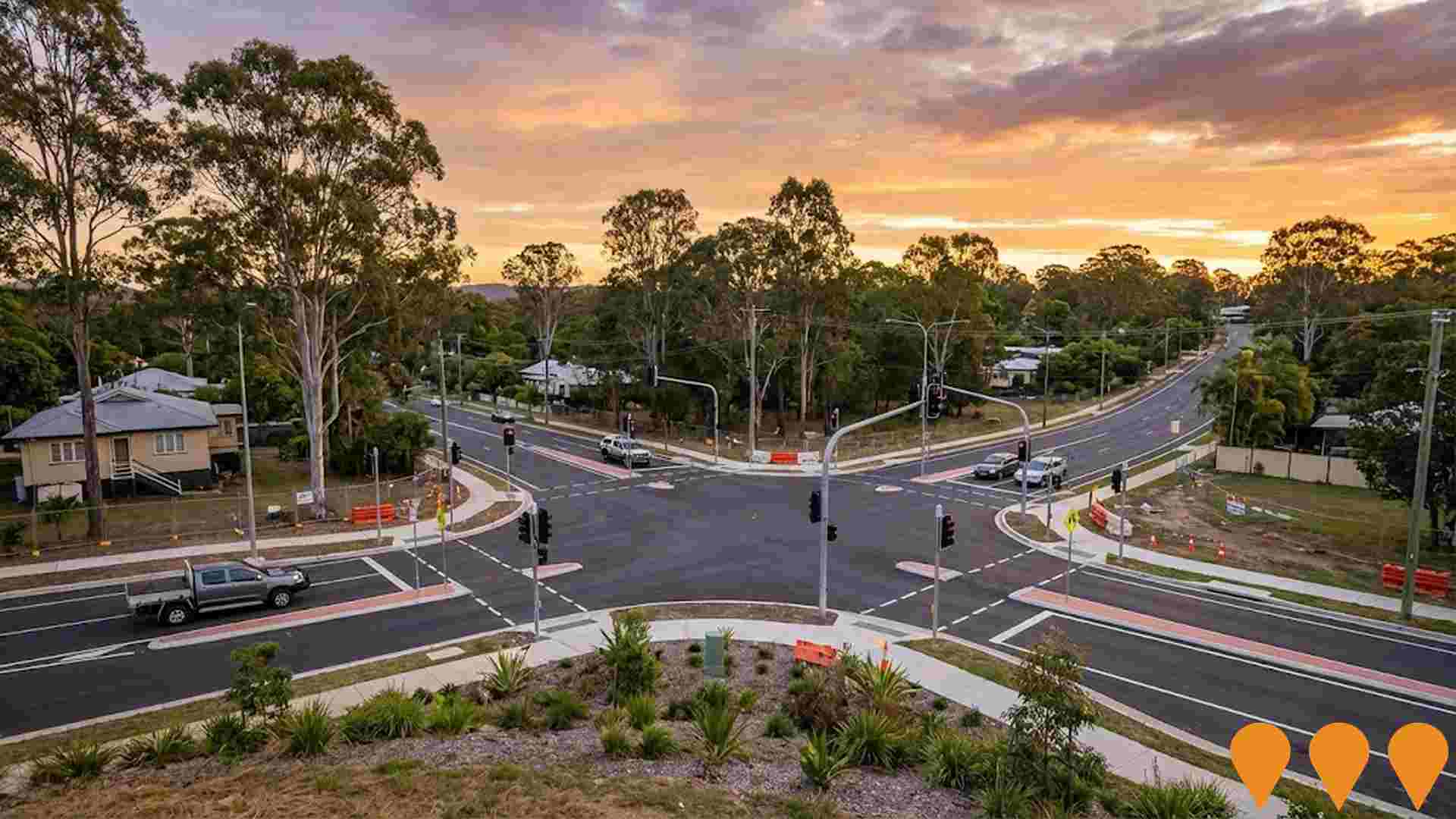
North Ipswich Apartments
Ipswich City Council approved a two-stage multiple dwelling project for 104 apartments (22 x 1-bedroom and 82 x 2-bedroom) across five titles at 28-30 Lowry St, 45-47 Flint St and 12 Pelican St (Approval: 2367/2016/MCU). As of mid-2025, council records show a later MCU for single residential use affecting 12 Pelican St, indicating at least part of the original scheme has been modified and the 104-unit approval may not be proceeding in full. No construction activity is evident on council's Development.i portal.
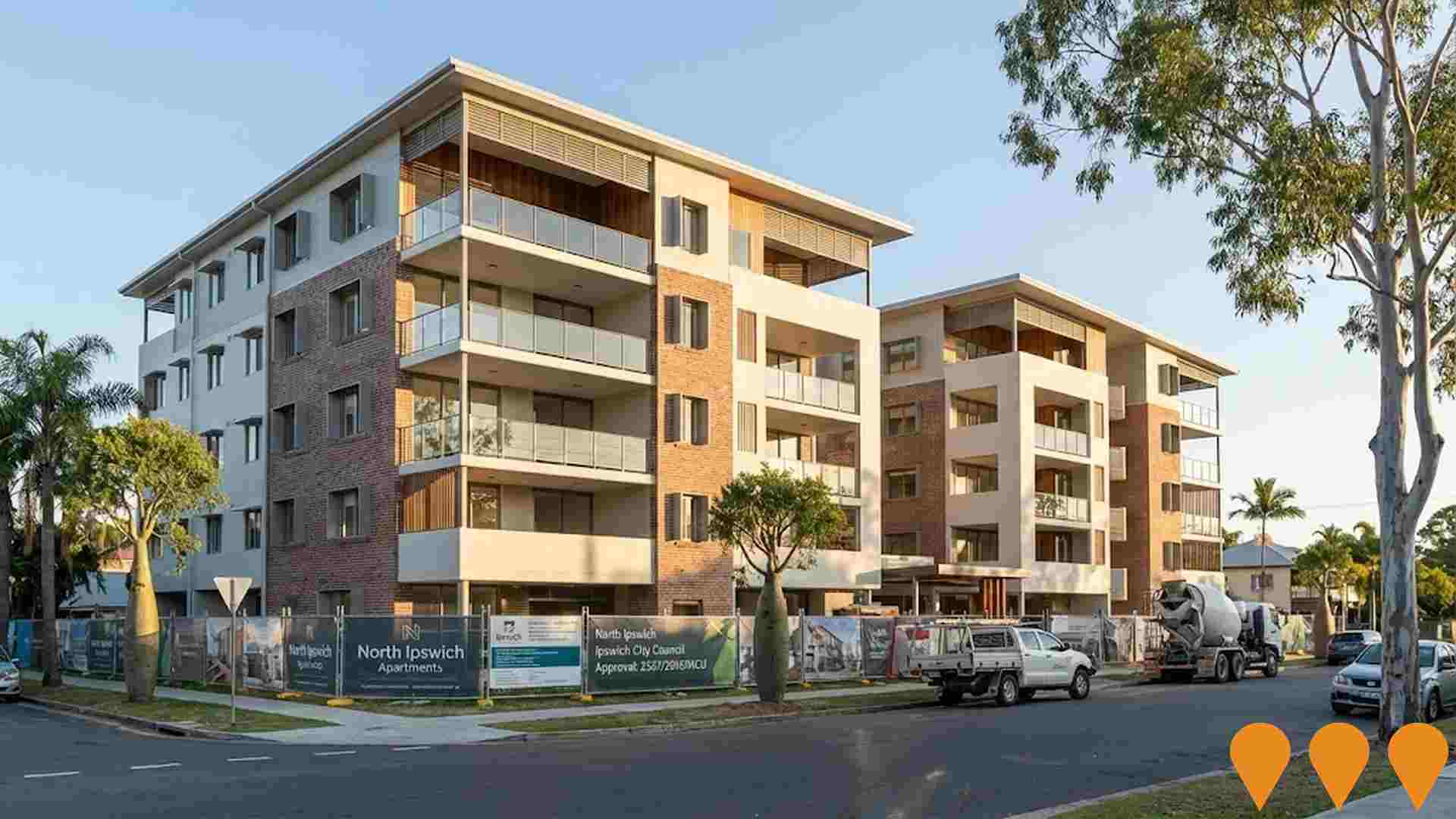
The Terrace
The Terrace complex consists of two nine-storey and two 11-storey buildings, totaling 31,000sq m. Developed by Christopher Zenonos in Brisbane, the project includes an increase to 303 apartments and basement levels with flood immunity.
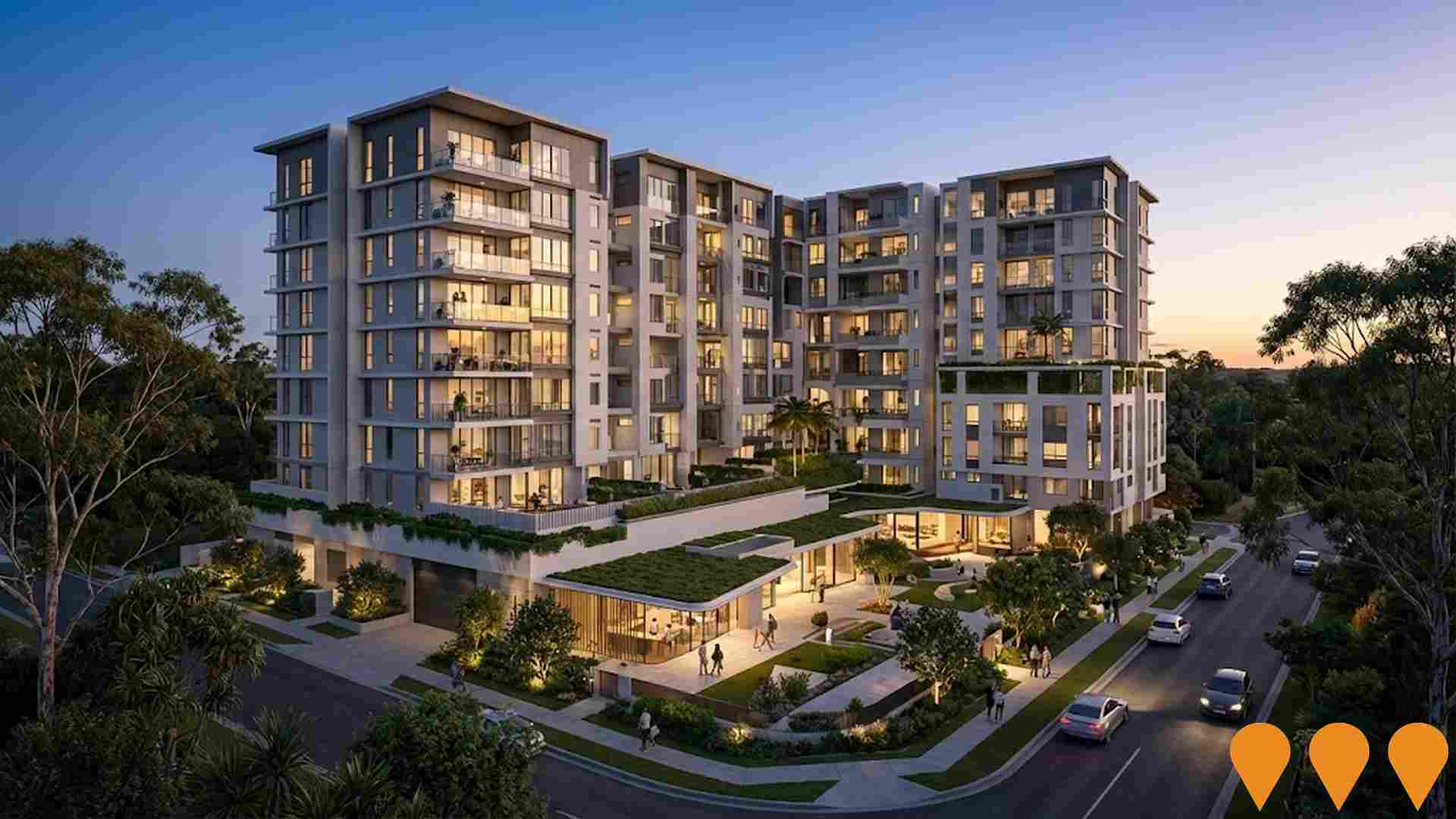
Employment
North Ipswich - Tivoli shows employment indicators that trail behind approximately 70% of regions assessed across Australia
North Ipswich - Tivoli has a balanced workforce comprising white and blue-collar jobs, with essential services sectors well-represented. As of September 2025, the unemployment rate is 6.6%, with an estimated employment growth of 4.9% over the past year.
There are 3,012 residents in work, but the unemployment rate is 2.6% higher than Greater Brisbane's rate of 4.0%. Workforce participation lags at 54.1% compared to Greater Brisbane's 64.5%. Dominant employment sectors include health care & social assistance, construction, and education & training. Manufacturing shows notable concentration with levels at 1.5 times the regional average.
Conversely, professional & technical services are underrepresented at 4.3% versus the regional average of 8.9%. Many residents commute elsewhere for work based on Census data. Between September 2024 and September 2025, employment levels increased by 4.9%, labour force grew by 3.0%, leading to a 1.6 percentage point decrease in unemployment. In comparison, Greater Brisbane recorded employment growth of 3.8% with unemployment falling by 0.5 percentage points. As of 25-Nov-25, Queensland's employment contracted by 0.01% (losing 1,210 jobs), with the state unemployment rate at 4.2%, aligning with the national rate of 4.3%. National employment forecasts from May-25 project a 6.6% increase over five years and 13.7% over ten years. Applying these projections to North Ipswich - Tivoli's employment mix suggests local employment should increase by 6.3% over five years and 13.3% over ten years, assuming constant population growth for illustrative purposes.
Frequently Asked Questions - Employment
Income
Income figures position the area below 75% of locations analysed nationally by AreaSearch
The North Ipswich - Tivoli SA2 had a median taxpayer income of $47,491 and an average income of $52,982 in the financial year 2022, according to postcode level ATO data aggregated by AreaSearch. This was below the national average for that year. In Greater Brisbane, the median income was $55,645 with an average income of $70,520. By September 2025, estimates suggest the median income in North Ipswich - Tivoli would be approximately $54,135 and the average income around $60,394, based on a 13.99% growth since financial year 2022. Census 2021 data indicates that incomes in North Ipswich - Tivoli fall between the 20th and 80th percentiles nationally for households, families, and individuals. Income distribution shows 31.6% of the population (2,138 individuals) earn within the $1,500 - $2,999 range, which is consistent with regional levels at 33.3%. Housing affordability pressures are severe, with only 84.6% of income remaining after housing costs, ranking at the 22nd percentile nationally.
Frequently Asked Questions - Income
Housing
North Ipswich - Tivoli is characterized by a predominantly suburban housing profile, with above-average rates of outright home ownership
Dwelling structure in North Ipswich - Tivoli, as per the latest Census, was 91.1% houses and 8.9% other dwellings (semi-detached, apartments, 'other' dwellings), compared to Brisbane metro's 88.4% houses and 11.6% other dwellings. Home ownership in North Ipswich - Tivoli was 31.5%, with the rest being mortgaged (39.7%) or rented (28.8%). The median monthly mortgage repayment was $1,300, lower than Brisbane metro's average of $1,517. Median weekly rent in North Ipswich - Tivoli was $285, compared to Brisbane metro's $300. Nationally, North Ipswich - Tivoli's mortgage repayments were significantly lower than the Australian average of $1,863, while rents were substantially below the national figure of $375.
Frequently Asked Questions - Housing
Household Composition
North Ipswich - Tivoli features high concentrations of lone person households, with a lower-than-average median household size
Family households account for 64.7% of all households, consisting of 22.5% couples with children, 25.9% couples without children, and 14.6% single parent families. Non-family households comprise the remaining 35.3%, with lone person households at 32.1% and group households making up 3.4%. The median household size is 2.3 people, which is smaller than the Greater Brisbane average of 2.6.
Frequently Asked Questions - Households
Local Schools & Education
Educational outcomes in North Ipswich - Tivoli fall within the lower quartile nationally, indicating opportunities for improvement in qualification attainment
The area's university qualification rate is 14.4%, significantly lower than Greater Brisbane's average of 30.5%. Bachelor degrees are the most common at 9.8%, followed by postgraduate qualifications (2.4%) and graduate diplomas (2.2%). Vocational credentials are prominent, with 43.1% of residents aged 15+ holding them, including advanced diplomas (10.2%) and certificates (32.9%). Educational participation is high, with 26.9% of residents currently enrolled in formal education, including primary (9.7%), secondary (7.3%), and tertiary (4.0%) levels.
Educational participation is notably high, with 26.9% of residents currently enrolled in formal education. This includes 9.7% in primary education, 7.3% in secondary education, and 4.0% pursuing tertiary education.
Frequently Asked Questions - Education
Schools Detail
Nearby Services & Amenities
Transport
Transport servicing is high compared to other areas nationally based on assessment of service frequency, route connectivity and accessibility
North Ipswich-Tivoli has 62 active public transport stops, all bus services. These are covered by 9 routes offering a total of 3,222 weekly passenger trips. Residents enjoy excellent accessibility with an average distance of 193 meters to the nearest stop.
Service frequency is high at 460 trips per day across all routes, translating to about 51 weekly trips per individual stop.
Frequently Asked Questions - Transport
Transport Stops Detail
Health
Health performance in North Ipswich - Tivoli is a key challenge with a range of health conditions having marked impacts on both younger and older age cohorts
North Ipswich - Tivoli faces significant health challenges, with various conditions affecting both younger and older residents. Approximately 47% of the total population (~3,160 people) has private health cover, compared to 49.9% across Greater Brisbane and a national average of 55.3%. Mental health issues impact 12.9% of residents, while arthritis affects 11.8%.
However, 54.6% report having no medical ailments, compared to 62.2% in Greater Brisbane. The area has 22.1% of residents aged 65 and over (1,497 people), higher than the 15.3% in Greater Brisbane. Health outcomes among seniors are broadly similar to those of the general population.
Frequently Asked Questions - Health
Cultural Diversity
North Ipswich - Tivoli is considerably less culturally diverse than average when assessed alongside AreaSearch's national rankings for language and cultural background related metrics
North Ipswich-Tivoli showed lower cultural diversity, with 90.0% being citizens, 87.8% born in Australia, and 96.0% speaking English only at home. Christianity was the predominant religion, at 50.6%, compared to 49.5% regionally. The top three ancestry groups were English (30.0%), Australian (28.0%), and Irish (8.9%).
Notable differences included German (7.4% vs regional 6.4%), New Zealand (1.0% vs 0.9%), and Samoan (0.4% vs 0.9%).
Frequently Asked Questions - Diversity
Age
North Ipswich - Tivoli's population is slightly older than the national pattern
North Ipswich - Tivoli has a median age of 41, which is higher than Greater Brisbane's figure of 36 and Australia's median age of 38. The 75-84 age group is over-represented in North Ipswich - Tivoli at 8.7%, while the 15-24 age group is under-represented at 10.1%. Between 2021 and present, the 55 to 64 age group has increased from 11.9% to 12.7%, while the 5 to 14 age group has declined from 11.9% to 10.6%. By 2041, demographic modeling suggests significant changes in North Ipswich - Tivoli's age profile. The 85+ age cohort is projected to increase by 269 people (123%), from 217 to 487. The combined 65+ age groups are expected to account for 71% of total population growth, reflecting the area's aging demographic trend. Meanwhile, the 15-24 and 0-4 age cohorts are projected to experience population declines.
